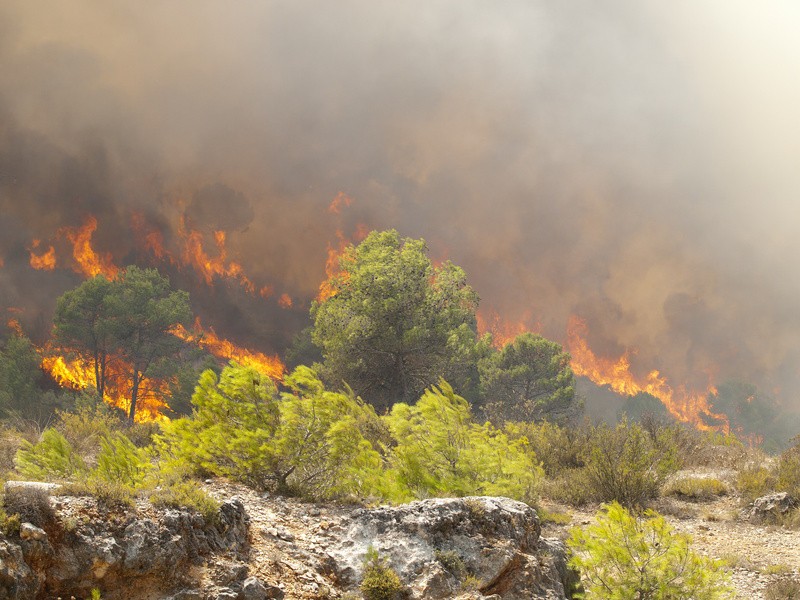Risk of forest fires to increase threefold

This wildfire season has been one of the worst since the turn of the century. Blazes swept through 660,000 hectares in Europe.Concerned by these figures and EFFIS’s warning that forest fire risk is set to triple, the European Union decided to act by launching the FirEUrisk project in April last year. This project is being carried out under the Horizon 2020 Framework program and aims to deliver a science-based strategy for preventing and fighting forest fires in Europe. The Portuguese Association for the Development of Industrial Aerodynamics (ADAI) is leading a multidisciplinary consortium of 38 institutions from 18 countries in which multinational tech company GMV is playing a key role.
The project seeks to bolster forest fire management by developing effective solutions and services and generating knowledge to tackle the challenges linked to current European forest fire conditions and those predicted for the coming decades. The main goal of FirEUrisk is to develop a scientific strategy that will prepare ecosystems and society to manage future fires, taking into account differences across Europe in terms of response capacity, operational experience, equipment, and so on.
With a budget of €10,271,044, the project is scheduled for completion in March 2025 and will bring about a paradigm shift in forest fire management. GMV is a crucial player in this international research project, coordinating two particularly important tasks:
- Assessing the cascading effects of forest fires: Cascading effects refer to both the causes and consequences of fires, including higher temperatures, longer dry periods, weaker forest stands due to pests, soil erosion and compaction, increased runoff, landslides, flooding, loss of biomass, and carbon sequestration.
- Demonstrating the proposals in five selected regions across Europe: Kalmar County (Sweden); Central Europe (Brandenburg and Saxony in Germany, Bohemia in the Czech Republic, and Silesia in Poland); Central Portugal; Barcelona, Spain; and Attica, Greece.
A survey is being carried out in these regions to assess regional needs, considering their different communities and fire risks. The aim is to identify their problems and needs in terms of wildfire prevention and protection for the following aspects: wildfire risk assessment, wildfire mitigation and adaptation, and multilevel integration of wildfire risk. The information gathered will be used to show the scalability of the proposed developments. GMV has been involved for more than 20 years in European Commission-funded projects focusing on aspects such as fire ecology, prevention, suppression, and recovery.